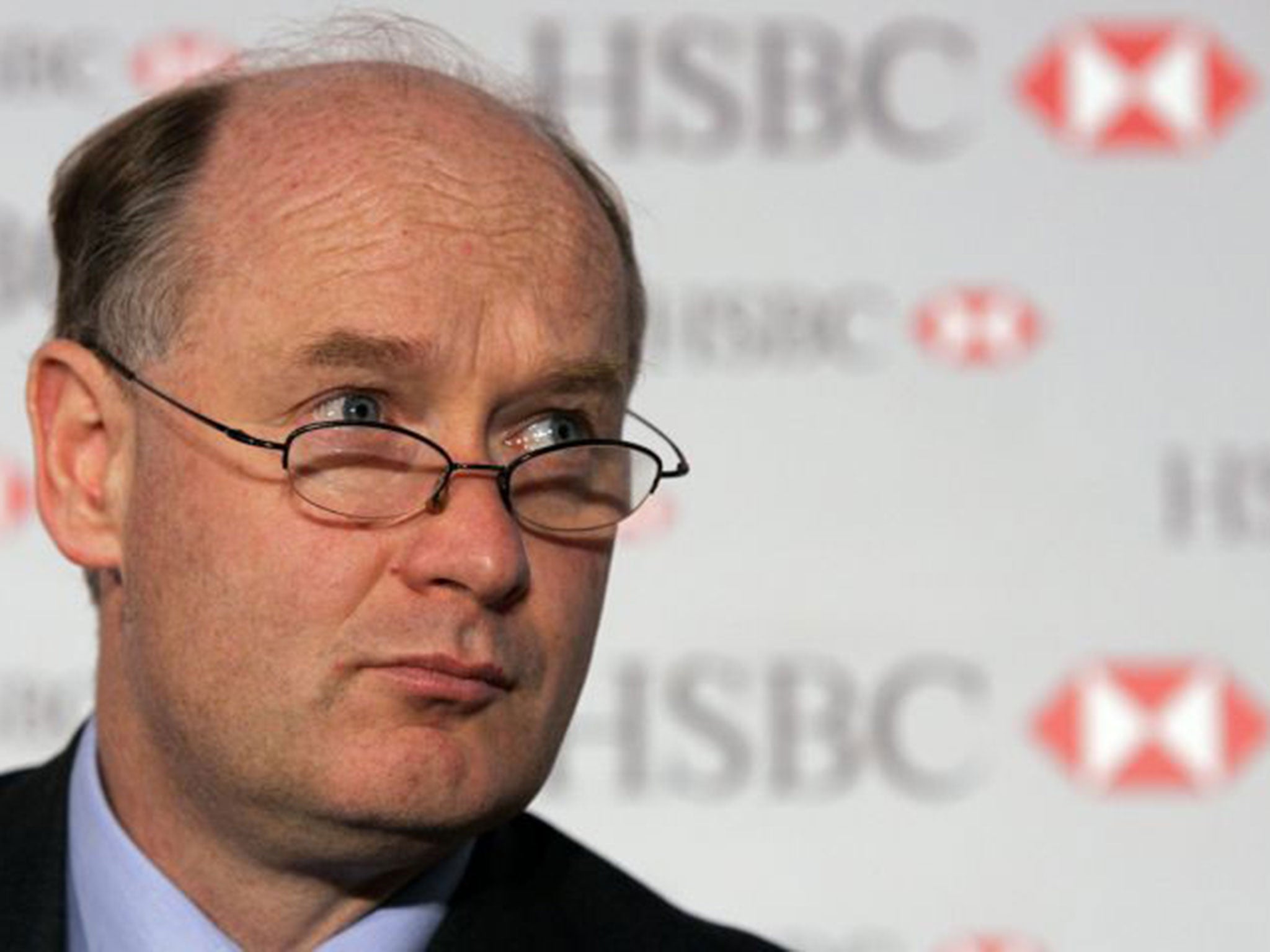HSBC’s chairman is worried about a revived race to the bottom in banking regulation. We should be too
Disaster is the inevitable consequence of countries competing for banking business by weakening the rules, and that could happen were a Euro-phobe to find their way into Number 11

When big banks talk about regulation their general view (even if not expressed publicly) is “we need less of it”. As such, their self-interested pronouncements are usually best taken with a pinch of salt.
Usually. However, as part of his outgoing interim results statement, HSBC’s chairman Douglas Flint made some important points.
Mr Flint declared himself pleased that, despite a lot of bluster from the White House, it now seems that the US will stay within “the international regulatory concordat” and continue to be an active participant in international regulatory bodies.
He also said there was no evidence of European countries attempting to indulge in regulatory competition in an attempt to lure business their way.
So why raise the issue at all? Mr Flint is clearly concerned over the prospect of it happening. And he’s right to be.
“Regulatory arbitrage” was a depressing feature of the international financial market prior to the financial crisis. This country was as guilty as any of playing that self-destructive game. It scarcely seems credible that UK watchdogs used to boast about their “light touch” regulation, but they did.
Mr Flint rightly recognises that it would be a bad thing for this to be repeated. There is no worse way of competing for businesses than racing to the bottom of the regulatory pile. It is the way madness lies.
The crisis of 2007/2008, what occurred in the run-up to those years, and the string of ugly scandals that have come to light in their wake, should have taught that lesson. That a senior banker is worried enough that it didn’t to highlight the issue should make us very worried in turn.
According to Mr Flint, the best way to proceed when it comes to the regulation and oversight of banks is, as far as possible, not for countries to compete but for them to co-operate in their mutual self-interest, and to oversee the creation of a playing field that is more or less level.
An admirable sentiment, it’s just rather a pity that he went and somewhat undermined his point with what he said about events in the US.
Mr Flint opined that the US is “leading the rest of the world in applying a retrospective lens to the aggregate of regulatory changes implemented and proposed in the aftermath of the global financial crisis”.
This “fresh look, focusing on simplification and supporting economic growth” is, he said, “to be welcomed”.
It would be if you accept that simplification and supporting economic growth is what this is about.
However, critics of recent developments in the US, and I’m talking here about American critics of recent developments in the US, have argued that something else is at work. They say that Wall Street is pushing back against post-crisis reforms, not in the interests of economic growth and simplification, but instead in the interests of Wall Street.
It has an ally in Donald Trump, who has already talked about tearing up Obama-era regulatory reforms. Were it not for the mess the Republicans are making of governing, and their focus on denying millions of Americans healthcare, that process might have gone a lot further than it has.
Mr Trump wouldn’t hesitate to slash regulation in an attempt to drive business to Wall Street, regardless of the dangerous consequences that would have, for the US and for the world. Mr Flint shouldn’t kid himself, or us, about that.
Britain, run by a no less juvenile and nationalistic administration, has, so far, not shown any real signs of doing the same thing, despite Brexit. Chancellor Philip Hammond today even dialled back on one of his sillier pronouncements – to slash taxes and turn Britain into a foggy Singapore if Europe doesn’t jolly well do as it’s told.
However, the fact that one of the few semi-sensible members of the cabinet felt moved to table such a threat in the first place only underlines the danger.
Consider, if you would, what might happen if one of cabinet’s corps of dim-witted Euro-phobes were to find their way into number 11. Is it a stretch to believe they might be quite keen on the idea of sticking it to Johnny Foreigner by tearing up banking regulations if they thought it would boost the City of London?
As he prepares to exit the HSBC stage, it’s no wonder Mr Flint is worried.
Join our commenting forum
Join thought-provoking conversations, follow other Independent readers and see their replies
Comments
Bookmark popover
Removed from bookmarks